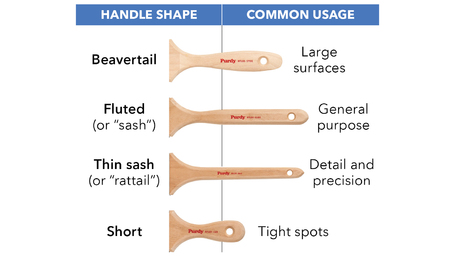I recently had my drilled well water tested and everything came back fine, except the Arsenic reading. It is 70 PPB – pretty high considering the new allowable level is 10 PPB. and 20 PPB over the previous allowed level of 50 PPB. I want to install an arsenic water treatment system. To head off the “first identify the source” responses, I live in Southern New Hampshire in an area that is historically known to have arsenic related issues. It is not from chemical dumping or other outside causes but is believed to be from natural occurring arsenic in the soil.
Problem is, I don’t know much about this subject yet – what type of system is best, how do you find a reputable dealer etc. I’m learning, but I’d appreciate any advice that you guys might have [“guys” being used as a general, gender neutral term; don’t beat me up for being sexist! 🙂 ]
Thanks,
George



















Replies
You know, sometimes my brain hordes the strangest unnecessary-for-my-existence information. I remember hearing an interview w/a guy who was treating wells for arsenic very simply & cheaply w/excellent results(I believe he won an award, too). If I remember correctly, Jerome McDonald featured the guy on a World View segment. He does interviews on Thursdays or Fridays w/people who are making a difference. You hear lots of cool stories that normally don't hit the headlines. Global Activism series, I think...
I found a link about Bangladesh arsenic removal but I don't remember if that was where this guy was working.
http://www.unu.edu/env/Arsenic/Meng.pdf
Arsenic-removal system wins NAE award
Lehigh team, led by Arup SenGupta, tackles a well water problem affecting millions in India and Bangladesh.
Lehigh's winning team included (L-R) Owen E. Boyd, Prasun Chatterjee, Arup SenGupta, Lee Blaney, John Greenleaf and Sudipta Sarkar. Not shown: Arun K. Deb.
An international team of engineers, led by Lehigh professor Arup SenGupta, has won a $200,000 prize for its efforts to counter what some people have called the world’s worst environmental catastrophe.
The researchers, who have designed a system that filters arsenic from well water, will receive the Silver Award in a contest sponsored by the National Academy of Engineering (NAE) and The Grainger Foundation.
The awards were announced Feb. 1 by NAE and will be presented at the 2007 NAE Awards Dinner on Tuesday, Feb. 20, in Washington, D.C.
RedAlert. We are at escape#17 but circumstantial evidence indicates #18.
The answer depends on the "type" of arsenic (arsenite or arsenate) present, your test results may give the ratio. Arsenate is easier to remove--ion exchange or reverse osmosis. Arsenite is more difficult to remove; i.e., the treatment required is more involved. Here's a link to a site with some good general information:
http://www.mass.gov/dep/water/drinking/arswell.htm
Found this on the World View site.Water for People
February 9, 2006
Steve Werner—Executive Director, Water for PeopleEvery 15 seconds, a child under five dies from a water-related illness. Forty percent of the world lacks basic sanitation. And more than a billion people drink unsafe water. So the group Water for People has its work cut out for it. Water for People helps communities in more than six countries solve their own water problems—through hygiene education and by building latrines, arsenic filter pumps, and hand-washing and laundry stations.RedAlert. We are at escape#17 but circumstantial evidence indicates #18.
Call Skillings and Sons, Well Drillers. 603 889 5009. They are in Hollis
They will set you straight.